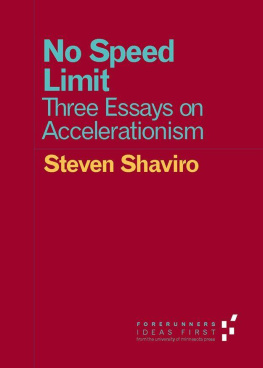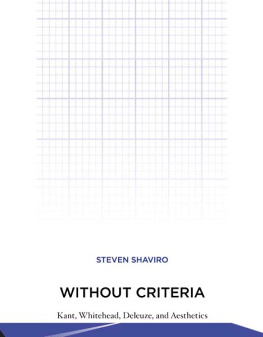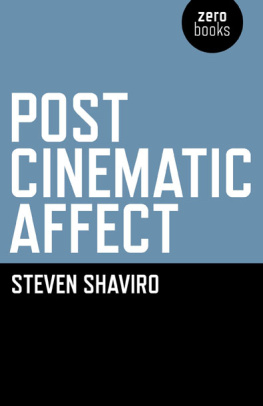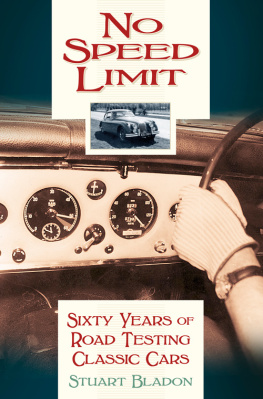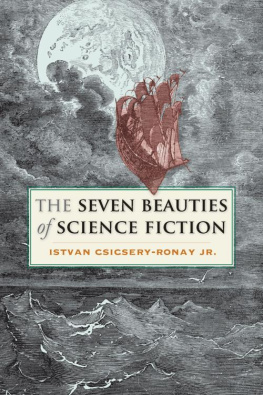Steven Shaviro - No Speed Limit: Three Essays on Accelerationism
Here you can read online Steven Shaviro - No Speed Limit: Three Essays on Accelerationism full text of the book (entire story) in english for free. Download pdf and epub, get meaning, cover and reviews about this ebook. year: 2015, publisher: Univ Of Minnesota Press, genre: Politics. Description of the work, (preface) as well as reviews are available. Best literature library LitArk.com created for fans of good reading and offers a wide selection of genres:
Romance novel
Science fiction
Adventure
Detective
Science
History
Home and family
Prose
Art
Politics
Computer
Non-fiction
Religion
Business
Children
Humor
Choose a favorite category and find really read worthwhile books. Enjoy immersion in the world of imagination, feel the emotions of the characters or learn something new for yourself, make an fascinating discovery.
- Book:No Speed Limit: Three Essays on Accelerationism
- Author:
- Publisher:Univ Of Minnesota Press
- Genre:
- Year:2015
- Rating:4 / 5
- Favourites:Add to favourites
- Your mark:
No Speed Limit: Three Essays on Accelerationism: summary, description and annotation
We offer to read an annotation, description, summary or preface (depends on what the author of the book "No Speed Limit: Three Essays on Accelerationism" wrote himself). If you haven't found the necessary information about the book — write in the comments, we will try to find it.
Accelerationism is the bastard offspring of a furtive liaison between Marxism and science fiction. Its basic premise is that the only way out is the way through: to get beyond capitalism, we need to push its technologies to the point where they explode. This may be dubious as a political strategy, but it works as a powerful artistic program.
Other authors have debated the pros and cons of accelerationist politics; No Speed Limit makes the case for an accelerationist aesthetics. Our present moment is illuminated, both for good and for ill, in the cracked mirror of science-fictional futurity.
Forerunners: Ideas First is a thought-in-process series of breakthrough digital publications. Written between fresh ideas and finished books, Forerunners draws on scholarly work initiated in notable blogs, social media, conference plenaries, journal articles, and the synergy of academic exchange. This is gray literature publishing: where intense thinking, change, and speculation take place in scholarship.
Steven Shaviro: author's other books
Who wrote No Speed Limit: Three Essays on Accelerationism? Find out the surname, the name of the author of the book and a list of all author's works by series.

